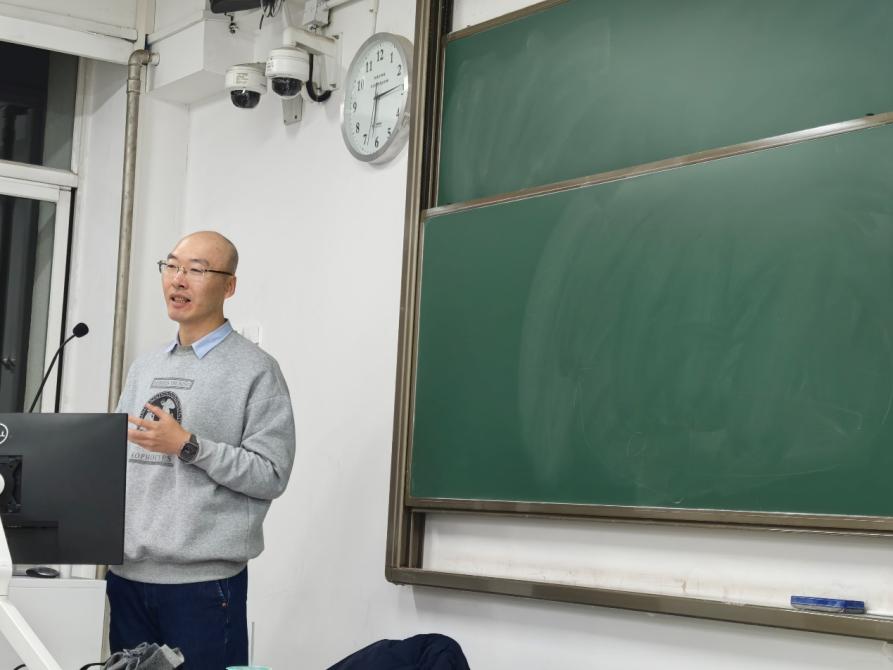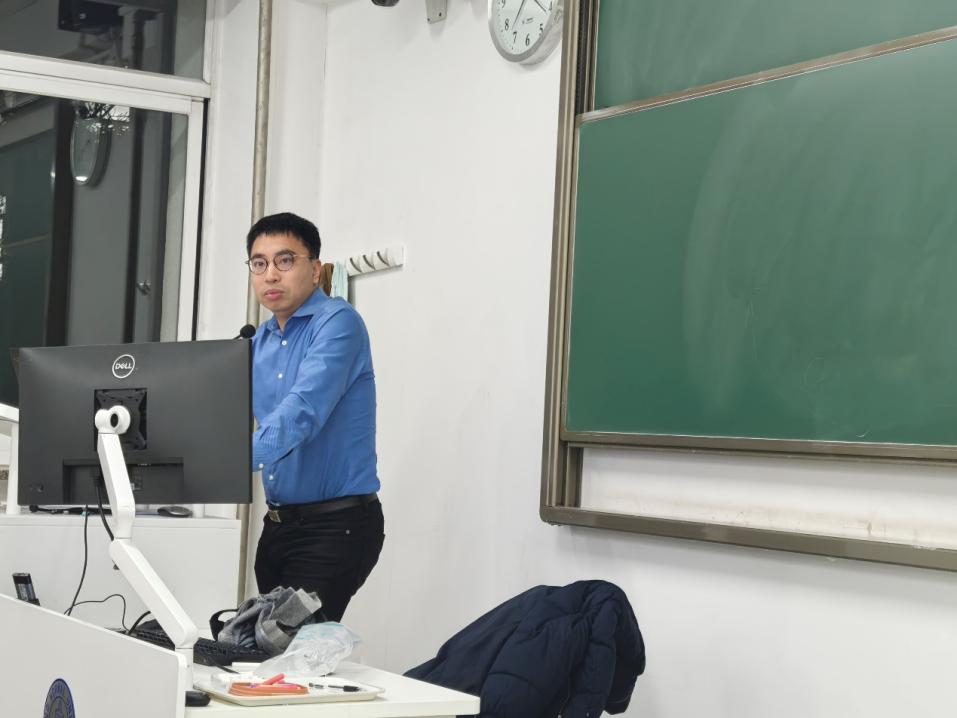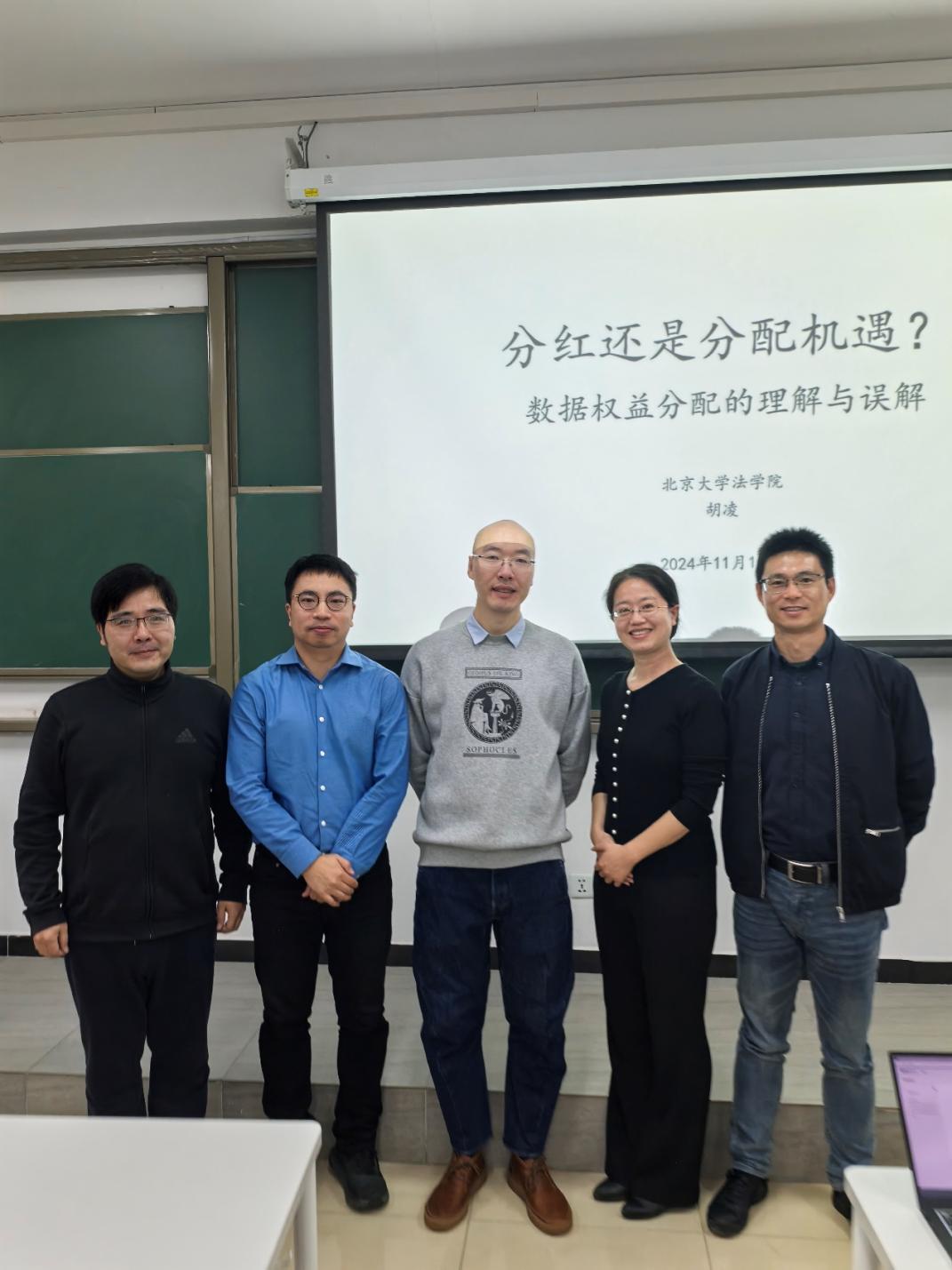
On the evening of November 11, 2024, the 32nd session of the BNU Legal Graduate Salon, titled "Dividends or Distribution of Opportunities: Exploring the Nuances of Data Rights and Interests," was successfully conducted in Room 204 of Teaching Building 7. The lecture was given by Associate Professor Hu Ling from Peking University Law School, hosted by Associate Professor Wu Shenkuo from Beijing Normal University Law School, and attended by over 60 teachers and students from the Law School of Beijing Normal University, including Associate Professors Zhang Jiangli and Yan Houfu. Associate Professor Shen Weiwei from the School of Law of China University of Political Science and Law served as the panelist.
Prior to the commencement of the lecture, Associate Professor Wu Shenkuo extended a warm welcome to Associate Professor Hu Ling, offering an insightful overview of his academic background and accomplishments.
Associate Professor Hu Ling highlighted that the traditionally accepted notion of data rights distribution envisions data as assets that can generate revenue through transactional circulation, with dividends distributed from the total income—akin to the approach used in traditional intellectual property within industrial production. However, in the digital production paradigm, data rights have experienced a significant transformation. With the marginal cost of information production trending towards zero, social entities are more inclined to seek transactional and collaborative opportunities through information exchange, rather than relying on data dividends. Consequently, scarce and valuable resources like traffic have emerged as new focal points for distribution, a shift echoed in the practices of the platform economy. As orchestrators of the production model, platforms employ market mechanisms or directive methods to regulate and control distribution, rendering it a non-spontaneous process deeply influenced by external forces. This integration of primary and secondary distribution concepts alters the previous distribution model based on labor or technology. The platform's allocation of information rights resembles the internal operational processes of an enterprise, thereby reshaping the structure of the digital market itself. To navigate this landscape, we must gain a deeper understanding of the digital economy's essence and consider the distinctive distribution challenges posed by information production methods.

During the conversation, Professor Shen Weiwei pointed out that from a static perspective, the issue of data as property rights urgently needs to be clarified. As an emerging phenomenon, data has many non-traditional characteristics, including non competitiveness, economies of scale, and great universality. The determination of ownership is extremely important. From an analytical perspective, it is reasonable to conduct problem analysis based on a platform perspective. In China, the data market is an emerging economy with lower levels of monopoly, more intense market competition, and stronger liquidity in the use and production of data. Its production, distribution, and profits are different from traditional markets. These current situations prevent us from thinking about data allocation issues from a traditional perspective, but require us to view data as a new economic market, where the issue of rights and interests cannot be considered from the perspective of a single entity. If we start from a platform perspective and comprehensively measure the positioning and profit methods of each market participant, we can gain new perspectives for thinking.

In the Q&A segment, Associate Professor Hu Ling offered comprehensive responses to the inquiries posed by the students. The lecture concluded triumphantly, met with an appreciative round of applause from both faculty and students.

